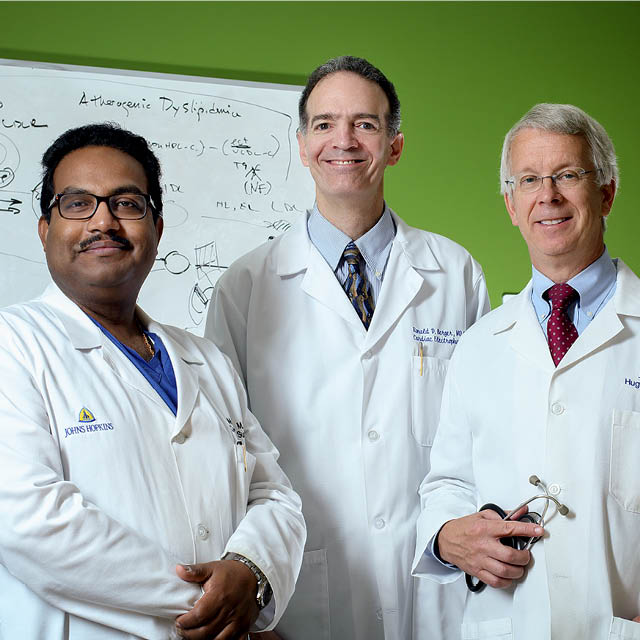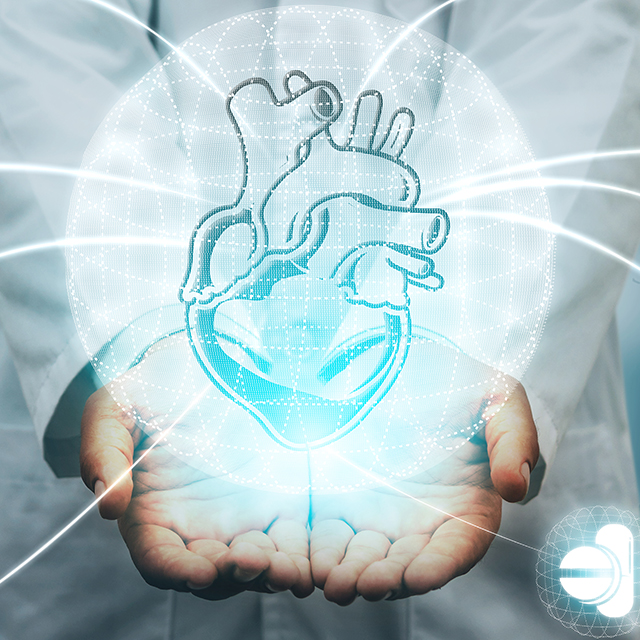Patients with complex heartbeat irregularities can now get Johns Hopkins care in the National Capital Region.
Johns Hopkins Medicine has hired Zeshan Ahmad, M.D., to lead a new cardiac ablation program based in Bethesda. Ahmad also sees patients at The Johns Hopkins Hospital and Sibley Memorial and Suburban hospitals.
Ahmad specializes in treating complex arrhythmias such as atrial fibrillation, an irregular heartbeat that can cause stroke, heart failure and other heart-related complications. Recent data also suggest a link to dementia. Ahmad uses a hybrid surgical approach for long standing and difficult to treat atrial fibrillation.
The new program is part of a strategy to increase Johns Hopkins heart and vascular care services in the National Capital Region so patients don’t have to travel to Johns Hopkins hospitals in Baltimore for treatment, says Jessica Melton, M.H.A., Suburban Hospital’s president and chief operating officer.
“Offering this treatment to patients already in our practices can improve their quality of life,” she says.
“Arrythmia” is a blanket term for any irregular heartbeat. The most common is atrial fibrillation (Afib). Other types of arrythmia are tachycardia (a heartbeat that is too fast) and bradycardia (a heartbeat that is too slow). Both tachycardia and bradycardia can cause fatigue, shortness of breath, chest pressure, fainting and, in extreme cases, cardiac arrest.
Catheter ablation treats arrythmias by using catheters to deliver heat or cold to heart tissue to disrupt the erratic electric currents.
The procedure is not new, but Ahmad has been trained in use of the newest technologies and methods using highly sophisticated catheters that create real-time three-dimensional maps of the heart and its electric currents. “What used to take six to eight hours to do back in the day, we are able to do in two to three hours these days due to the standardization and improvements in technology,” he says.
During the procedure, which is performed under general anesthesia, Ahmad threads two catheters through a vein in the groin — one does the mapping and the other performs the ablation. Most patients can go home the same day or leave after a single night at the hospital.
Patients can expect improvements in fatigue, palpitations and shortness of breath, but they might not be able to stop using blood thinners right away, he says. Patients, especially those with heart failure, seem to respond the best to catheter ablation for atrial fibrillation.
Ahmad provides a well-rounded approach to treating his patients that includes medication, ablation and nonmedical steps such as lifestyle modifications and treatment of sleep apnea, which has been associated with a high rate of atrial fibrillation.
Ahmad graduated from the University of Toledo College of Medicine in Ohio and completed a general cardiology fellowship at the Banner — University Medical Center (part of the University of Arizona in Phoenix), followed by a fellowship in electrophysiology at the University of Texas Health Science Center at Houston.
“The reason I went into electrophysiology specifically is because I diagnosed my father with AFib at home, and that made me realize that I needed to do more in order to help him and others with the management of atrial fibrillation,” he says.
Between his residency and cardiology fellowship, Ahmad returned to Seattle to see his family. He was at a friend’s house one evening when his mother called, saying his father was in bed, sweating heavily and experiencing palpitations.
“I rushed home and took his pulse, which was irregular,” Ahmad says. “We took him to the local emergency department.” Fortunately, a regimen of blood thinners and other medications has controlled the condition for now, but the experience prompted Ahmad to shift his focus to electrophysiology.
The field, he says, is moving forward, providing procedures that are safer and more effective than ever before. “The biggest limitation was technology, and now the technology is letting us do these advanced procedures,” he says. “It’s getting more and more exciting.”


